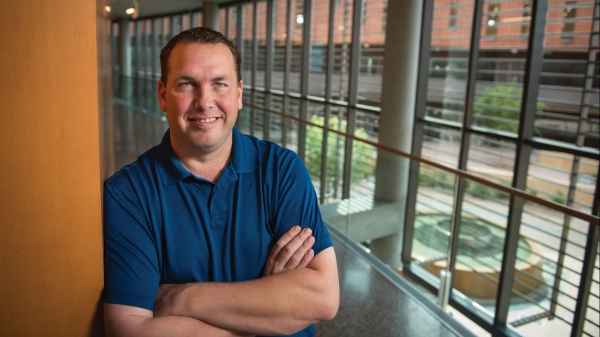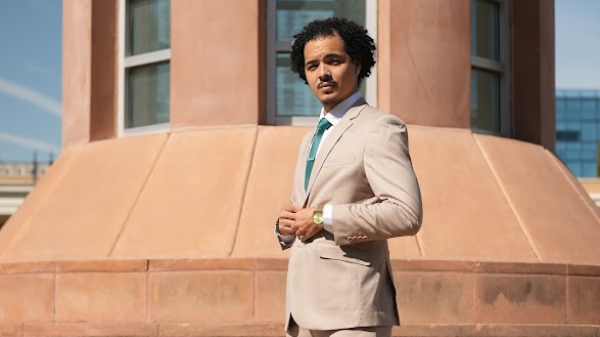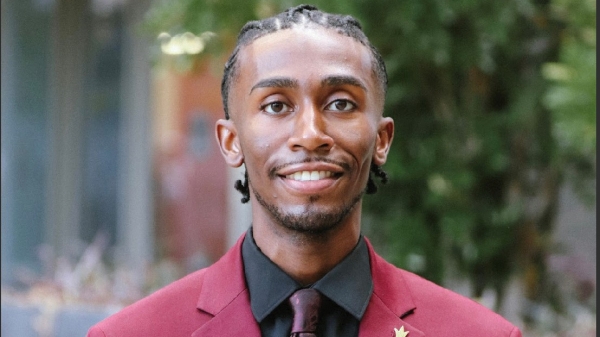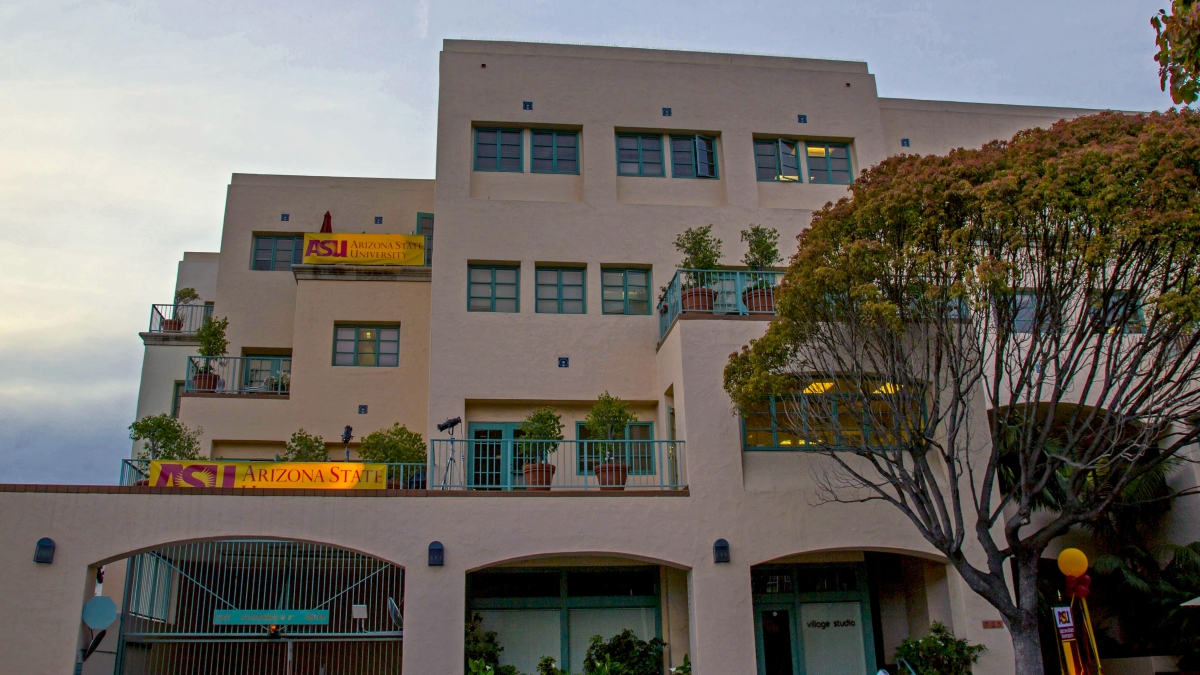Arizona State University opened its new ASU California Center in Santa Monica, Calif., with a reception on March 20. While the new space will act as an outreach center in a key market – although workshops, forums and internships will be held there as well – it is not an academic center or campus.
The California Center will provide ASU with a location in the Los Angeles area to connect with prospective students and their parents, offer enhanced academic and internship experiences for current ASU students, engage with alumni and strengthen connections between ASU’s entrepreneurial faculty and the critically important Southern California innovation ecosystem. It also will provide a location for ASU’s on-line engagement with California students and provide a local presence to support development activities.
“ASU has grown tremendously in the last 10 years in terms of student population, research funding and intellectual creativity,” said ASU President Michael Crow. “We feel now is an excellent time to establish a point of contact in this very important region and to spread the word on what ASU is doing and what it can do for you.”
Several ASU units will operate from 725 N. Arizona Ave. in Santa Monica, including Arizona Technology Enterprises (AzTE), the ASU Alumni Association, ASU Foundation, ASU Online, Center for Social Cohesion, Sandra Day O’Connor College of Law – Los Angeles Legal Externship Program, Undergraduate Admissions, the W. P. Carey School of Business, the Walter Cronkite School of Journalism and Mass Communication and Zócalo Public Square. In addition to these units, the Arizona Commerce Authority and California Chicano News Media Association will be co-located at the site.
AzTE, ASU’s exclusive intellectual property management and technology transfer organization, is a good example of how the university plans to use the California Center. AzTE will use the office as a base to build relationships between ASU inventors and investors, as well as partnering with other major Los Angeles area research universities on a start-up competition modeled on the AZ Furnace accelerator program.
“AzTE has long cultivated relationships with entrepreneurs, investors, companies and universities in both Northern and Southern California,” said Augie Cheng, AzTE’s managing director. “This new office will further increase ASU’s visibility among key stakeholders in this important market and serve as a launching pad for a wide range of new entrepreneurial partnerships, programs and initiatives.”
The commercialization of university research generates new jobs, new companies and even entire new industries. The challenge comes with finding the right partners and strategic investments needed to move from research to startup.
“There are many opportunities to connect the work of our outstanding ASU faculty and students,” said Sethuraman “Panch” Panchanathan, senior vice president for ASU's Office of Knowledge Enterprise Development. “By our presence in Southern California, we want to embed ASU’s innovations and expand our economic and societal impact.”
ASU California Center comprises 9,970 sq. ft. of academic, office, meeting and event space on three floors. The Center includes approximately 2,550 sq. ft. of event space.
Co-written by Derek Sarley
More Sun Devil community

Matt Carter Staff Spirit Awards program honors legacy of ASU employee
In December 2023, the W. P. Carey School of Business lost colleague and friend Matt Carter. Carter joined the school in 2013 and…

Education grad strengthens family's legacy at ASU
Editor’s note: This story is part of a series of profiles of notable spring 2024 graduates. For Ahlias Jones, his Sun Devil…

ASU Law grad takes sports dreams to the legal field
Editor's note: This story is part of a series of profiles of notable spring 2024 graduates. Kurt “KJ” Russell Jr. had big…
